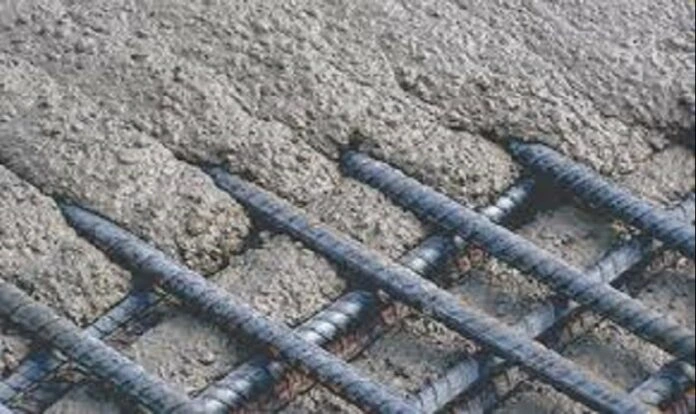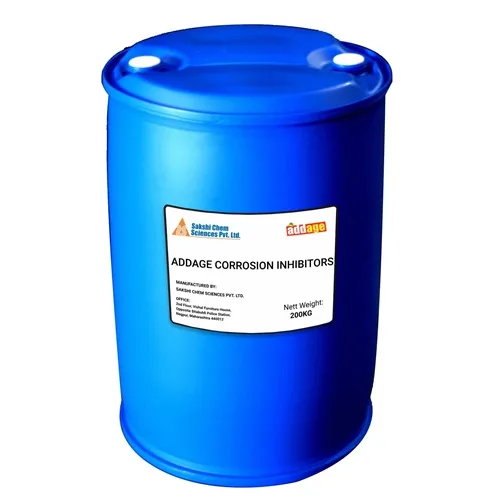Corrosion has been a predominant issue impacting reinforced concrete schemes. With time, the steel reinforcement in concrete tends to corrode when exposed to water, salts, and other environmental factors, causing considerable structural damage.
Fortunately, with passionate technological advancement, some modern materials and techniques have laid the introduction of corrosion inhibiting admixtures to avert concrete from undue corrosion damage.
Table of Contents
This blog will explore corrosion inhibiting admixtures; the types, dosage, and instance scenarios of such admixtures; commonly asked questions about them; and, taken together, give a more significant understanding of their role in concrete structures and their functioning.
What Are Corrosion Inhibiting Admixtures?
Corrosion inhibiting admixtures are additives mixed with concrete to lower corrosion chances of the embedded steel reinforcement.
Adding corrosion-inhibiting admixtures protects rebar inside concrete by forming a protective layer around steel and also by changing the chemical environment inside. By either slowing or altogether preventing corrosion, they help enhance the dream of longevity of the structures.
How Do Corrosion Inhibitors Work?
The function of both types of corrosion inhibitors is based on changing the electrochemical environment around the steel reinforcement so that the corrosion rate is lowered. Corrosion inhibitors usually act by primary mechanisms of an:
Active Inhibition: Active corrosion inhibitors directly interfere with the corrosion process by forming a protective layer on the surface of the steel reinforcement. This layer inhibits the diffusion of oxygen, moisture, and chloride ions, the three main contributors to corrosion.
Passive Inhibition: Passive corrosion inhibitors change the concrete properties (e.g. pH) to make an atmosphere that is less suitable for rusting and forming other corrosion products on the steel.
Types of Corrosion Inhibiting Admixtures
Different types of corrosion-inhibiting admixtures are available to protect concrete against corrosion. The principal ones can be broadly distinguished as chemical inhibitors and electrochemical inhibitors.

1. Chemical Corrosion Inhibitors
Chemical Corrosion inhibitors are those substances that are added to concrete to produce protective films around the steel reinforcement. These inhibitors can also be classified, based on the chemical composition and interaction with the reinforcement.
Organic Corrosion Inhibitors: Organic inhibitors are considerably effective in preventing chloride-induced corrosion and are usually applicable in marine environments and places where deicing salts are used.
Inorganic Corrosion Inhibitors: Metal salts, such as calcium nitrite or sodium nitrate, comprise these inhibitors. Inorganic inhibitors work by creating a passive oxide film on the steel surface, which prevents the corrosion process. They are commonly employed in chloride-laden environments such as coastal and industrial zones.
Mixed Inhibitors: These are the combination of organic and inorganic corrosion inhibitors that act synergetically to provide long-term corrosion protection. Typically used in settings where high levels of chloride exposure are forecasted.


2. Electrochemical Corrosion Inhibitors
Electrochemical inhibitors act on electrochemical reactions that produce corrosion. This would decrease either the cathodic or the anodic reactions, both of which play a significant role in corrosion. They could be of the following categories:
Cathodic inhibitors: These reduce the cathodic reaction by interfering with the movement of electrons during the corrosion process. It reduces the rate of corrosion of steel reinforcement very effectively.
Anodic inhibitors: These act on the anodic reaction where steel reinforcement loses electrons while getting corroded. By influencing this reaction, anodic inhibitors slow down the rate of corrosion.
3. Surface Modifiers
Surface modifiers are yet another group of corrosion inhibitors. They modify surface properties of the concrete. They generally provide improved water-repelling ability of concrete which leads to better impermeability for moisture and chlorides.
These are not strictly defined as chemical or electrochemical inhibitors, but they do enhance the overall durability of concrete and protect the steel reinforcement from corrosion.
Dosages and Applications of Corrosion Inhibiting Admixtures
The exact dosage of corrosion inhibiting admixed materials depends on the kind of admixture used, state conditions, and the project specification. While the dosage is usually provided by the manufacturers, these are some suggested figure ranges:
Dosages
Chemical Corrosion Inhibitors- The chemical inhibitor dosage usually ranges from 1-5% by weight of the cement. Among the various chemical inhibitors used, inorganic inhibitors such as calcium nitrite generally require a higher dosage rate than organic ones.
Electrochemical Inhibitors- The dosage for electrochemical inhibitors varies widely, But is rather in the 0.5 to 2% range by weight of the cement.
Surface Modifiers- Depending on the specific product, surface modifiers may be added at lower dosages of typically 0.5 to 2% by weight of the cement.
Applications
Marine and Coastal Structures- Concrete exposed to seawater or marine environments is highly susceptible to corrosion by the presence of high levels of chlorides in the oceans and, hence, corrosion inhibiting admixtures are much commonly used in many marine structures like piers, jetties, and offshore platforms.
Bridges and Overpasses- Bridges and overpasses that come into contact with deicing salts during winter are prone to corrosion. If incorporated in these concrete admixtures will greatly add years to the protection of the entire reinforcements in the entire structure from aggressive deicing salts.
Industrial and Chemical Plants- In some environments like industrial facilities and chemical plants where chemicals, moisture, and aggressive pollutants can add an impetus to quick corrosion, admixtures for corrosion inhibition can be included in the creation.
Parking Garages- Parking garages are likely affected by deicing salts and vehicle emissions, enhancing the chances of corrosion on the reinforcements. The inclusion of corrosion inhibiting admixtures will, therefore, provide long life to the structure while lowering repair costs.
Conclusion
In the technological buildup of modern concrete, an impeccable corrosion inhibiting admixtures can provide great protection of reinforced concrete against the harming effects of corrosion.
Choosing the correct type of inhibitor, optimizing its dosage, and utilizing it in an appropriate environment allow engineers and construction professionals to make a huge improvement in the service life and durability of concrete structures.
FAQs
What are corrosion inhibiting admixtures?
Corrosion inhibitors are put in to make concrete admixtures for the purpose of minimizing the risk of corrosion on any steel reinforcement. Such admixtures do so by providing a film layer on the steel itself or by altering the environment around steel to slow or to prevent any corrosion from taking place.
What are some corrosion inhibitors?
These include calcium nitrite, sodium nitrite, amines, phosphates, fatty and organic acids, among other organic or inorganic materials that either form a protective film on the steel or change the electrochemical environment around it.
What are the additives for corrosion inhibitors?
Corrosion-resistant material additives are additives for corrosion inhibitors. Like organic and inorganic compounds of calcium nitrite, sodium nitrate, amines, silicates, and other recent chemical formulations. This helps prevent or slow corrosion in concrete structures,
What are the types of corrosion inhibitors in concrete?
There are several types of inhibitors in concrete:
Chemical inhibitors: Organic and inorganic substances, which form protective layers around the steel.
Electrochemical inhibitors: These include cathodic and anodic inhibitors, which essentially change the nature of electrochemical reactions.
Surface modifiers: The additives that enhance the resistance of concrete to water and chlorides.
What is the function of a corrosion inhibitor?
A corrosion inhibitor performs an important function in preventing the corrosion of steel reinforcement in concrete or slowing the rate of corrosion occurring in it. Basically, it creates a protective layer around the steel or alters the chemical environment in the concrete in such a way as to provide lesser chances of corrosion.
What is a good corrosion inhibitor?
A good corrosion inhibitor is any that effectively inhibits or dramatically slows the corrosion process, enhancing the service life of that structure. While working in the particular set of environments given by the project, thus preventing, for example, oxidation due to chlorides or high humidity.
What is a different name for a corrosion inhibitor?
A corrosion inhibitor is also called a rust inhibitor. These are chemicals specifically designed to prevent the formation of rust on the steel reinforcement in concrete..
What are the different types of inhibitors?
The following are types of corrosion inhibitors:
Organic inhibitors
Inorganic inhibitors
Electrochemical inhibitors (cathodic and anodic)
Surface-modifying agents
What is the most effective corrosion-inhibiting coating?
The most effective corrosion inhibiting coatings are the coatings that form a physical barrier between concrete and the outside environment, such as epoxy coatings and polyurethane coatings. These coatings resist the entry of moisture and chlorides to the steel reinforcement and, in turn, reduce corrosion tremendously.
How to prevent corrosion in steel?
Corrosion in steel can be prevented by:
Using corrosion inhibiting admixtures in the concrete.
Applying protective coatings, such as epoxies or galvanizing.
Keep a high pH in concrete to prevent rust formation.
Having proper drainage so that concrete is not exposed to water.
What is an example of a corrosion inhibitor?
An example of a corrosion inhibitor is calcium nitrite, whereby the common application is in the concrete that may be in high chloride environments, such as marine structures or parking decks.
What is the principle of corrosion inhibitor?
Corrosion inhibitors may act according to some basic principles by either forming some sort of a protective film on the steel reinforcement or modifying the electrochemical environment surrounding the steel for the reason of diminishing the corrosion rate to enhance the durability of that concrete structure.
How do corrosion inhibitors work?
Corrosion inhibitors prevent corrosion by blocking the access of harmful ions, such as chlorides, to the steel surface or by modifying the chemical processes that occur during a corrosion reaction. It thus protects the reinforcement from rust and corrosion that may damage the concrete structure.
Sagar Telrandhe is a Construction Engineer with a B.Tech in Construction Engineering & Management. Passionate about infrastructure development, project planning, and sustainable construction, he specializes in modern construction techniques, project execution, and quality management, contributing to efficient and innovative building.

